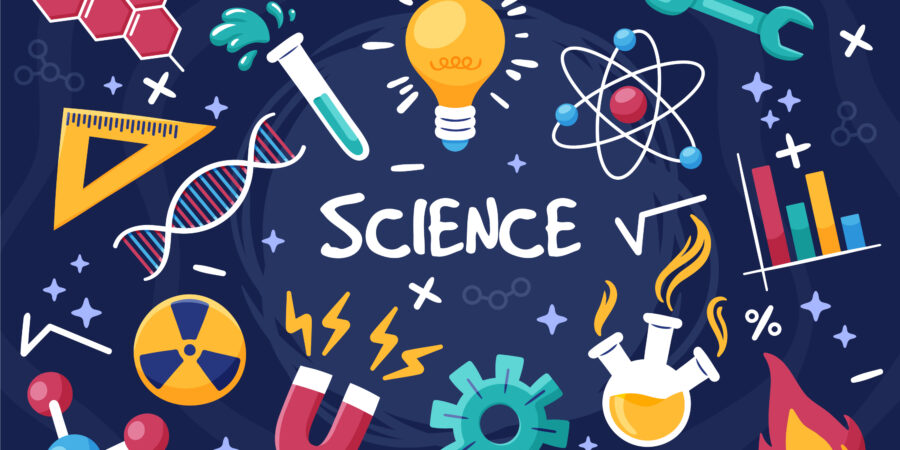Science is one of the most popular fields of study in Nigerian universities. It includes a wide range of courses that prepare students for careers in medicine, technology, agriculture, the environment, education, and more. Whether you want to become a doctor, computer scientist, biochemist, or environmentalist, there’s a science course for you.
In this article, we’ll see the full list of science courses offered in Nigerian universities and help you understand what each course involves.
What Are Science Courses?
Science courses are academic programs that focus on studying the natural world using observation, experimentation, and analysis. These courses are offered in the Faculty of Science, Faculty of Health Sciences, Faculty of Agriculture, Faculty of Engineering, and other related faculties.
Students who wish to study science courses must usually have a strong background in subjects like Mathematics, Biology, Physics, Chemistry, and English from their secondary school (SSCE or WAEC/NECO).
General Categories of Science Courses
Science courses can be grouped into several major categories:
Pure and Applied Sciences
Health and Medical Sciences
Engineering and Technology
Environmental Sciences
Agricultural Sciences
Education (Science-related)
Now, let’s look at the full list of science courses available in Nigerian universities.
1. Pure and Applied Science Courses
These courses focus on the scientific study of the physical and natural world.
Biology
Chemistry
Physics
Mathematics
Statistics
Geology
Biochemistry
Microbiology
Industrial Chemistry
Computer Science
Botany
Zoology
Marine Biology
Biotechnology
Environmental Biology
Science Laboratory Technology
Applied Geophysics
Information Technology
Cybersecurity
Software Engineering
Actuarial Science
Astronomy
These courses prepare students for careers in research, education, pharmaceuticals, oil and gas, ICT, and more.
2. Health and Medical Science Courses
These are courses related to health care, medicine, and the human body.
Medicine and Surgery (MBBS)
Nursing/Nursing Science (Nursing as a Course in Nigeria: Why You Should Consider It)
Medical Laboratory Science
Dentistry and Dental Surgery
Pharmacy
Human Anatomy
Human Physiology
Radiography
Physiotherapy
Public Health
Optometry
Biomedical Science
Nutrition and Dietetics
Medical Rehabilitation
Veterinary Medicine
Students in this category often work in hospitals, clinics, laboratories, research centres, and pharmaceutical companies.
3. Engineering and Technology Courses
Engineering courses combine science and technology to solve real-world problems.
Civil Engineering
Mechanical Engineering
Electrical/Electronics Engineering
Chemical Engineering
Computer Engineering
Petroleum Engineering
Mechatronics Engineering
Telecommunication Engineering
Software Engineering
Aerospace Engineering
Agricultural Engineering
Marine Engineering
Biomedical Engineering
Metallurgical and Materials Engineering
Systems Engineering
Industrial Production Engineering
These courses are highly practical and lead to careers in construction, manufacturing, oil and gas, IT, aviation, and more.
4. Environmental and Earth Science Courses
These courses focus on the environment, natural resources, and the Earth.
Environmental Science
Geography
Geophysics
Urban and Regional Planning
Meteorology
Climatology
Environmental Management and Toxicology
Forestry and Wildlife Management
Fisheries and Aquaculture
Soil Science
Graduates in this field often work with government agencies, environmental NGOs, research institutes, and international organizations.
5. Agricultural Science Courses
These courses deal with food production, farming, animal husbandry, and agricultural business.
Agriculture (General)
Agricultural Extension and Rural Development
Animal Science
Crop Science
Soil Science
Fisheries
Forestry and Wildlife
Agricultural Economics
Food Science and Technology
Home Science/Nutrition
Plant Science and Biotechnology
Aquaculture
Students here are trained to become agricultural scientists, food technologists, farmers, and agribusiness experts.
6. Education Courses (Science-Based)
These courses are for students who want to become science teachers.
Education and Biology
Education and Chemistry
Education and Physics
Education and Integrated Science
Education and Mathematics
Education and Computer Science
Education and Agricultural Science
Education and Health Science
Graduates can work in schools, universities, or become private tutors or educational consultants.
Things to Consider Before Choosing a Science Course
Choosing a science course is an important decision. Here are some things to think about:
1. Your Passion
Pick a course that matches your interests. If you love computers, you might enjoy computer science. If you like health and helping people, nursing or medicine might be right for you.
2. Job Opportunities
Some courses have more job opportunities than others. Research the demand for your course before you choose.
3. Strength in Science Subjects
Make sure you’re strong in the science subjects required for your course, such as physics, chemistry, or biology.
4. Course Requirements
Each course has specific UTME and O’level subject requirements. Check with JAMB or the university’s website to confirm.
5. Accreditation
Make sure the university you want to attend is accredited and offers recognised programs in your chosen course.
Final Words
Studying a science course in Nigeria can open doors to exciting careers in health, technology, agriculture, education, and more. With over 70 science-related courses to choose from, there’s something for everyone — whether you want to work in a hospital, in a lab, on a farm, or with a tech company.
Before making your final decision, take time to research the course, understand what it involves, and know where it can take you. Remember, the best course is the one that matches your interest, passion, and strength.





